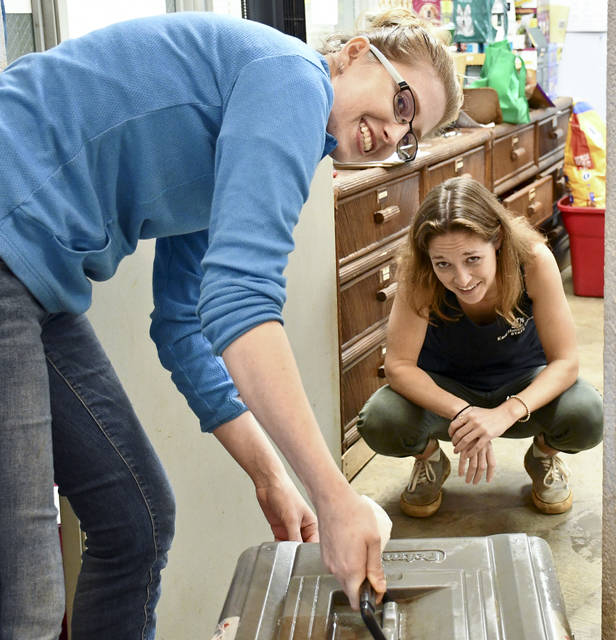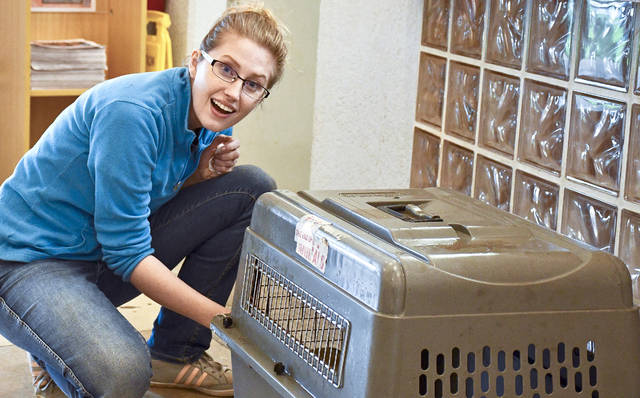PUHI — Kauai Humane Society hasn’t found a permanent leader for the facility, three months after the former executive director handed in his resignation.
The board of directors is taking its time selecting a replacement while Orrie Skomoroch has been at the helm.
“We know the organization is thriving under Orrie’s watch and are not in a rush to fill the position,” said KHS board president Diann Hartman.
She continued: “Orrie has stepped in as a great leader, forming good working relationships and mentoring both managers and staff.”
In early November, Scott Pisani resigned and said little about the factors in his decision.
“There were a lot of factors in my decision, but it was 100 percent my decision,” Pisani told TGI after his resignation. “I’m really proud of the work that we’ve done in the past year, and this is the best decision for me and my family.”
Pisani was executive director at KHS for a year, following the retirement of former director Penny Cistaro. He joined KHS from a post as vice president of field operations and animal experience at the Arizona Humane Society and has a background in animal welfare.
Skomoroch took over as interim executive director on Nov. 23. She was interim chief operating officer for the Kikiaola Land Company before her retirement and has experience in the role of KHS interim executive director from a stint about seven years ago.
“Managers and staff are benefiting from her approachableness, her open-door policy and her extensive leadership skills,” Hartman said.
Hartman continued: “She has a judicious eye for reducing costs while not sacrificing our mission and quality of care and has been vital in this capacity.”
Year in Review
2017 was a year of growth for KHS, as more animals were sterilized on the island than years previous with the Animal Balance Mobile Animal Sterilization Hospital (MASH) Clinic.
There were upticks in nearly every other area of KHS’s statistics as well. The facility took in 3,560 animals in 2017, 10 percent more than the 3,235 in 2016. Adoptions rose 40 percent with a total of 922 in 2017 compared to 657 in 2016.
Three percent more lost animals were returned to their owners. There were 477 returned pets in 2017 compared to 463 in 2016.
Euthanasia dropped by 25 percent, from 1,759 animals in 2016 to 1,318 animals in 2017. The exact breakdown of animals euthanized in 2017 was unavailable before print.
“Feral cats continue to be the vast majority,” Hartman said.
Transfers rose 72 percent, with 632 animals being transferred out compared to 368 in 2016.
“We had a great staff addition in the last quarter of the year in this position who increased our number of transfer partners on the mainland,” Hartman said. “Due to the successful matching fund drive, (it) nearly doubled our monthly transferred animals.”
The matching fund program was held in December 2017, and dubbed “Double Your Impact.”
Donations were matched up to $15,000 through Dec. 31 for helping the transfer program. The successful fundraiser allowed 100 animals to be transferred off -island to mainland rescue partners in 30 days.
The transfer program at KHS currently sends animals to mainland partner rescues via cargo on different airlines, though they used to fly animals through the Aloha Escorts program with Alaska Airlines.
That program is currently on pause and being restructured, and Alaska Airlines continues to be a partner with KHS by charting the organization by weight as opposed to a flat cargo shipping fee, according to Hartman.
Looking Forward
An increase in active volunteers and growth among staff members are some of the major goals for 2018, Hartman said, with a focus also on raising more funds for KHS, and specifically for additional MASH Clinics.
“I feel that we have a fantastic team now with each person really strong in their position and committed to the mission,” Hartman said.
When it comes to volunteers, KHS is hoping to further develop a wide network of people with varying skill sets to address the organization’s many needs.
“That means volunteers not just to walk dogs and pet cats, but to use their applied skillset for the good of the organization,” Hartman said.



